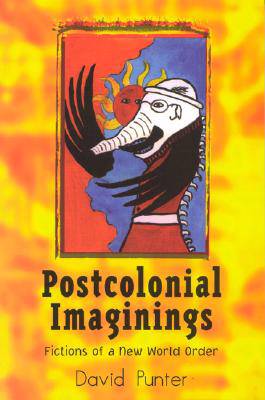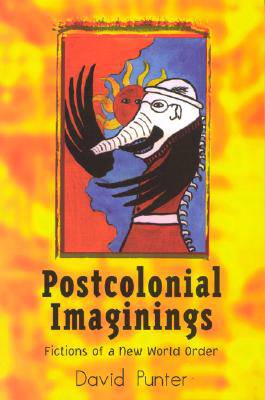
Door een staking bij bpost kan je online bestelling op dit moment iets langer onderweg zijn dan voorzien. Dringend iets nodig? Onze winkels ontvangen jou met open armen!
- Afhalen na 1 uur in een winkel met voorraad
- Gratis thuislevering in België vanaf € 30
- Ruim aanbod met 7 miljoen producten
Door een staking bij bpost kan je online bestelling op dit moment iets langer onderweg zijn dan voorzien. Dringend iets nodig? Onze winkels ontvangen jou met open armen!
- Afhalen na 1 uur in een winkel met voorraad
- Gratis thuislevering in België vanaf € 30
- Ruim aanbod met 7 miljoen producten
Zoeken
€ 101,95
+ 203 punten
Uitvoering
Omschrijving
This deeply engaging, historically, and culturally informed book provides new perspectives on a wide range of writers, and at the same time provides a radically new development of many of the most pertinent issues in the field of postcolonial writing and theory. It constitutes a major new engagement between the "postcolonial" and a conception of the literary that is richly innovative in its deployment of psychoanalytic, deconstructive, and other approaches to the text.
The book begins with some brief background to the issue of decolonization and its contemporary effects. It is informed throughout by a clear sense of literary and political context, within which chosen texts--by well-known writers (Derek Walcott, Chinua Achebe, Edward Kamau Brathwaite) as well as less well-known ones (Joan Riley, Susan Power, Abdulrazak Gurnah) and writers not often seen in a postcolonial context (James Kelman, Seamus Deane, Hanif Kureishi)--can be situated. The chapters that follow are based around themes such as violent geographics; hallucination, dream and the exotic; mourning and melancholy; diaspora and exile; delocalization and the alibi. This profoundly new approach to the complexities of the postcolonial allows the reader to appreciate some of the richness, but at the same time the political and cultural ambivalence, which underlies postcolonial writing. Throughout the book David Punter continually questions, as one would expect from his many previous books, the definition and scope of the "postcolonial." It is seen throughout as a phenomenon not restricted to the ex- or neo-colonies but as a key characterisation of all our lives at the beginning of the twenty-first century. It is an indissoluble part of the development of national imaginings and, at the same time, an alibi for the emergence of a violently assertive "new world order" committed to the management and obliteration of difference. By juxtaposing texts from different cultural traditions and topographies, from Things Fall Apart to The Bone People, from Anot
The book begins with some brief background to the issue of decolonization and its contemporary effects. It is informed throughout by a clear sense of literary and political context, within which chosen texts--by well-known writers (Derek Walcott, Chinua Achebe, Edward Kamau Brathwaite) as well as less well-known ones (Joan Riley, Susan Power, Abdulrazak Gurnah) and writers not often seen in a postcolonial context (James Kelman, Seamus Deane, Hanif Kureishi)--can be situated. The chapters that follow are based around themes such as violent geographics; hallucination, dream and the exotic; mourning and melancholy; diaspora and exile; delocalization and the alibi. This profoundly new approach to the complexities of the postcolonial allows the reader to appreciate some of the richness, but at the same time the political and cultural ambivalence, which underlies postcolonial writing. Throughout the book David Punter continually questions, as one would expect from his many previous books, the definition and scope of the "postcolonial." It is seen throughout as a phenomenon not restricted to the ex- or neo-colonies but as a key characterisation of all our lives at the beginning of the twenty-first century. It is an indissoluble part of the development of national imaginings and, at the same time, an alibi for the emergence of a violently assertive "new world order" committed to the management and obliteration of difference. By juxtaposing texts from different cultural traditions and topographies, from Things Fall Apart to The Bone People, from Anot
Specificaties
Betrokkenen
- Auteur(s):
- Uitgeverij:
Inhoud
- Aantal bladzijden:
- 248
- Taal:
- Engels
Eigenschappen
- Productcode (EAN):
- 9780742510869
- Verschijningsdatum:
- 1/11/2000
- Uitvoering:
- Paperback
- Formaat:
- Trade paperback (VS)
- Afmetingen:
- 155 mm x 234 mm
- Gewicht:
- 376 g

Alleen bij Standaard Boekhandel
+ 203 punten op je klantenkaart van Standaard Boekhandel
Beoordelingen
We publiceren alleen reviews die voldoen aan de voorwaarden voor reviews. Bekijk onze voorwaarden voor reviews.











